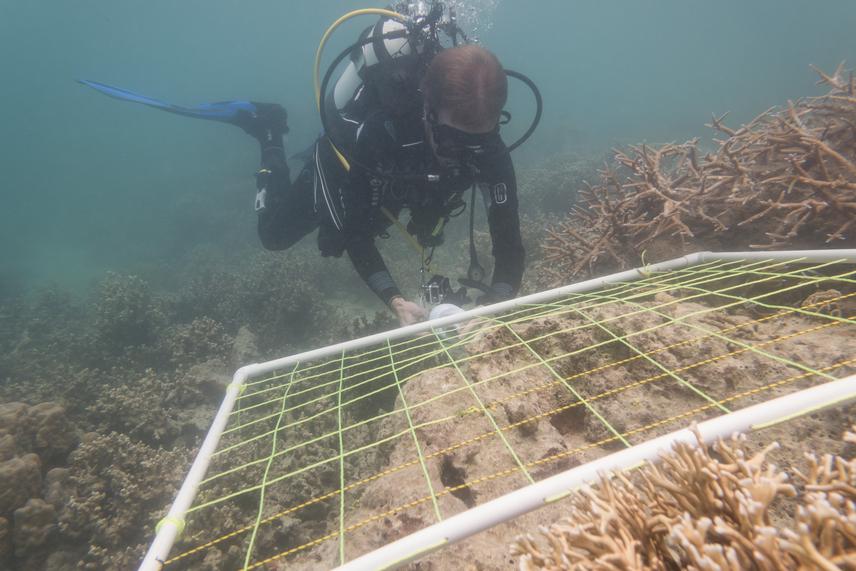Ryan McAndrews
I am investigating the impacts of human activity – chiefly spearfishing and nutrient input – on the ability of reef fish herbivores to support coral reef resilience in the Fijian Islands. This has important implications for the ability of reefs to withstand and recover from disturbances, and the sustainability of inshore fisheries for coastal communities.

Coral reefs are fundamental to traditional Fijian life. As ecological systems, they are dependent upon fish-based herbivory to maintain structural integrity and coral dominance. Among herbivores, species and sizes with more important ecological roles may also be more desirable targets for spearfishers. In Fiji, as with many areas in the South Pacific, spearfishing is a traditionally important fishing method. Herbivorous fish can include parrotfish, rabbitfish, surgeonfish, among others, all traditionally caught in Fiji. The effect of such fisheries on herbivory is not well understood, either for commercial or subsistence purposes. This project will investigate the presence and activity of reef herbivores in fished and locally managed marine protected areas, and will compare this information to fish most targeted by spearfishers and represented in local markets.
The information from this project will enable an evaluation of the effectiveness of locally managed marine protected areas – currently the primary method of marine conservation in Melanesia - to protect herbivore activity essential to coral reef resilience. In order to accomplish this, various methods will be used in concert: underwater visual census techniques will identify herbivorous fish in each area, remote video observations will identify important players in herbivory, and herbivore exclusion experiments will address the possible scope of such activity in times of disturbance. Furthermore, market surveys and interviews of fishers and fish wardens will address fisher decision making and preferences, and measure the contribution of species to total catch. Using novel techniques developed within recent years, data from these methods will also allow hierarchical organisation of the most important players in herbivorous function (i.e. the ones giving the biggest helping hand to newly settled coral larvae), and functional complementary of over 50 different species.
Collaborating between University of Bremen and the Leibniz Institute for Tropical Marine Ecology (ZMT) in Germany, University of the South Pacific, Wildlife Conservation Society, Fijian Ministry of Fisheries, and the Fijian Locally Managed Marine Areas (FLMMA) Network in Fiji, the findings of this project will be utilised to inform fisheries policies currently under revision, educational workshops, and inform alternative management strategies. The ultimate goal of the project is to propose management strategies that will ensure the ability of coral reef resilience to protect biodiversity and food security for the region.